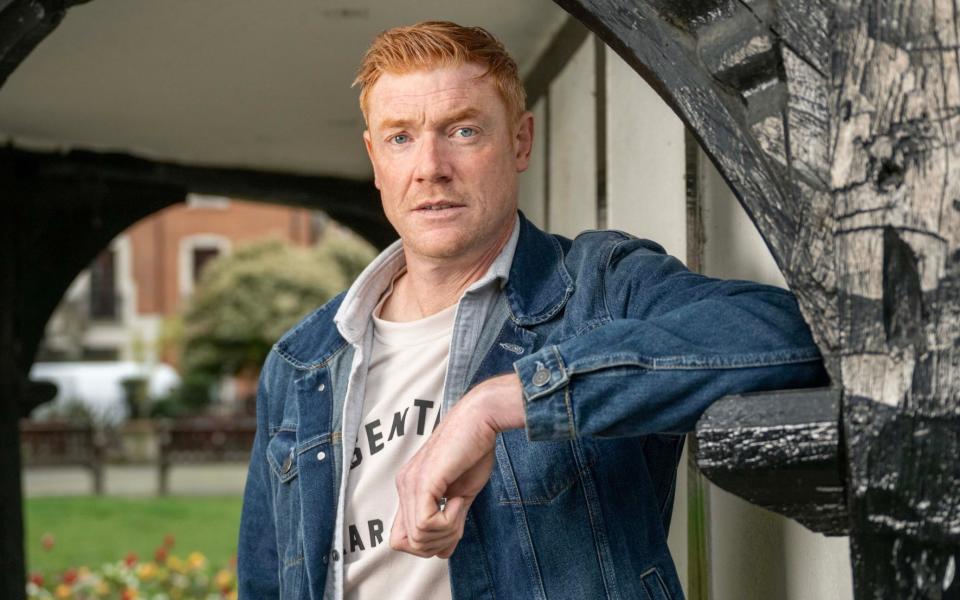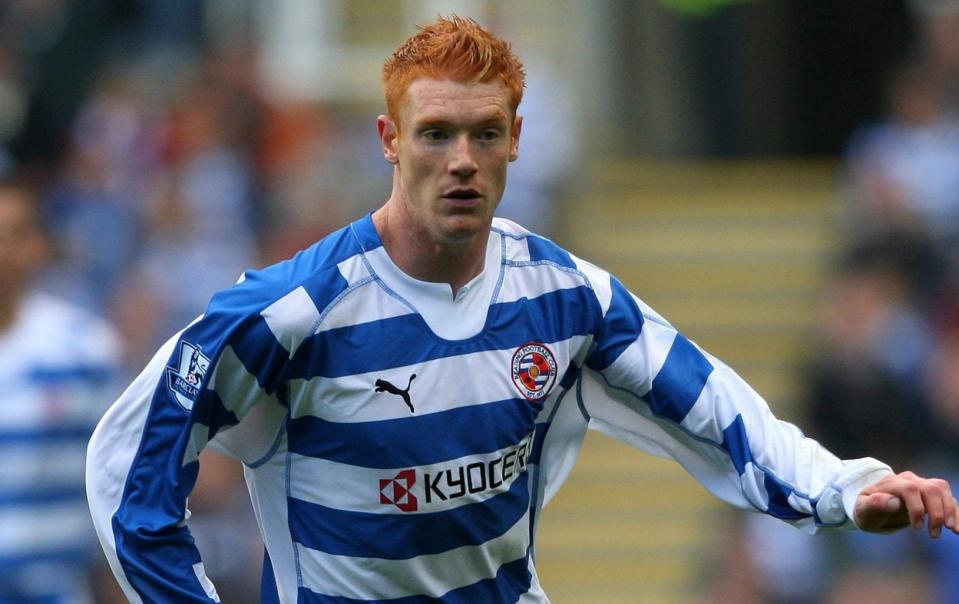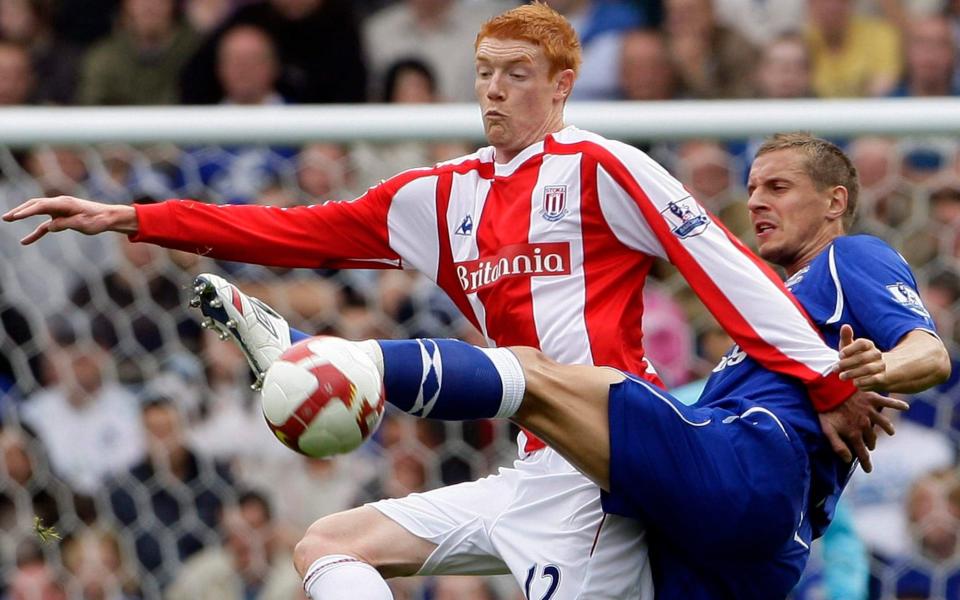‘Nobody said it would be easy’: Dave Kitson on managing Nauru, one of the world’s fattest countries

Dave Kitson is about to embark on a somewhat unexpected footballing journey. In July the former Reading, Stoke and Oxford striker is heading off to one of the most isolated places on earth: the tiny Micronesian state of Nauru. His role: to get the locals playing football. Which, given that the island boasts just one quarter-sized pitch and almost the entire landscape has been horribly scarred by a generation of phosphate mining, is likely to prove no easy task. Not to mention the fact that 70 per cent of the 12,000 inhabitants are clinically obese and more than 40 per cent of them have type two diabetes. According to the Global Obesity Observatory, Nauru is just behind American Samoa in terms of national obesity.
“No one said it was going to be easy,” he says, as talks to Telegraph Sport in a hotel drawing room in central London, the kind of place that is about as far from a rocky outcrop in the Pacific Ocean as it is possible to be. “They have asked me to manage the national team for their first few games. Trouble is, I live in Reading. Let’s just say it’s not an easy commute.”
Indeed it is not. Flying via Australia, it can take well over 24 hours to get there. That is if you can manage to connect with one of the irregular services into the place. But in a sense that makes the idea all the more appealing for Kitson, given that he has long cherished a most unusual ambition for a footballer.
“I always wanted to be a travel writer,” the 44-year-old says. “Well, it was more how can I get round the world on someone else’s ticket.”
His interest stems, he says, from when he was a child and his father used to take the family on extensive mystery tours round Europe. He loved the sights, the sounds, the sense of not knowing where you might be the following day. When he became a professional footballer, the opportunity to satisfy his wanderlust disappeared. And so he used to while away the time in hotel rooms at away matches on his laptop, reading about other people’s adventures.
“I had this obsession with North Korea,” he recalls. “And one time I read this article about it by a writer called Gavin Johnson. He left his contact details at the end of the piece. I got in touch and he turned out to be a huge football fan.”
The two remained in communication, Johnson keeping him up to date on his travels, and on the way in which he had started up a football club in Cambodia.
“Then he called me and said he had been invited to bring football to Nauru and basically wondered if I would like to be a sort of PR figurehead. I said I wasn’t interested in simply being that. If I was going to get involved it would be properly.”
Which is how he finds himself heading to a place it would not be inaccurate to describe as the middle of nowhere. He is fully aware of what is likely to confront him when he arrives.
“It’s not like the Seychelles,” he says. “It’s basically an open-cast mine.”

He has been researching the place’s history, how for a few years in the late 20th century it was the epicentre of world phosphate production, its reserves dug up relentlessly. For a brief moment, such was the value of what was being extracted, it was ranked the second wealthiest economy in the world, with annual income approaching £4 million a head.
“The stories are ridiculous,” he says. “Like the chief of police ordering a Lamborghini and when it arrived, he was too fat to fit behind the steering wheel.”
But then, after the last sprinkle of phosphate had been removed and the mining machinery was left to rust, the economy tanked.
“There’s nothing left of it now, all the money’s gone and there’s no infrastructure to show for it,” he says.
About the only legacy is a litany of health problems. And it is those that Kitson hopes to challenge with the introduction of football.
“I loved the documentary about the American Samoa football team, it was brilliant,” he says of the movie chronicling Nauru’s neighbouring island’s attempts to make it to the 2014 World Cup. “But we’re not going to pretend we’re going to qualify for tournaments. The point is, it is about what football can do.”

Kitson has long been reckoned the writer behind The Secret Footballer, the brilliant Guardian column and the best-selling books that took a sceptical view of footballing life. Though he has always denied he was the author, there is no question that as a player, he stood out in the dressing room. And not just because he is 6ft 4in with bright red hair. Rather because of his unusual approach to the trade.
“People ask me what I miss from my days as a player, expecting me to say the banter,” he says. “Well, the banter was what I couldn’t handle. I’d walk into the changing room and think: I cannot hear this conversation again, I’ve been hearing the same thing for the last 10 years. So people say, what about the rush of scoring? Well, I get the same rush scoring in Sunday football as I did in the Premier League.”
Indeed, a lot of his career, he says he felt uncomfortable.
“I didn’t like losing. I hated those runs pre-season. And I had terrible imposter syndrome. I’d be on the bus going to big clubs thinking: what the hell am I doing here?”
So what was good?
“I tell you, when you’d won and those 10 minutes in the dressing room after the final whistle, the collective sense of total satisfaction, of getting the job done, there is nothing to beat it. And it can’t be replicated. I really do miss that.”
And there is no question he still loves the game. He loved being chairman for three years of non-league club Arlesey Town, he loves his work these days coaching youngsters in Berkshire, not least taking Reading Blue Coat School to the final of the Independent Schools Cup last year.
‘What Yongge has done to Reading is absolutely disgraceful’
He is keen one day to become a director of football, looking to structure a club from bottom to top. He reckons much of his approach was absorbed sub-consciously during his time at Reading.
“I went there in 2003 and every year we were building, improving, getting better. When we won the Championship with 106 points, that was the vindication. You see that it works, the progress, the build brings positive results.”
His feelings about how things should be done have only been reinforced by watching his old club’s current predicament. He writes a column in the Reading Chronicle and he does not hold back.
“I will destroy Dai Yongge [the club owner] in print every single time I get the chance,” he says. “What he has done to that football club is absolutely disgraceful. Here you have a guy knocking down the place where I made my name.
“When a club is doing well the town is happier,” he adds. “When it’s not doing well, you feel it more. I live in Reading and it feels unhappy to me, like part of the soul has been sucked out of the town. What is happening at Reading is totally at odds with what I believe about football.”
And what he does believe about football he hopes to put into practice 8,850 miles away from the town where he had such success.
“That’s what I want to do at Nauru: build from the bottom, leave something better than how I found it.”
He pauses and smiles.
“Don’t bank on us getting to the World Cup, though” he says. “To be honest, I’d be surprised if we win a game.”

 Yahoo Sport
Yahoo Sport 





































